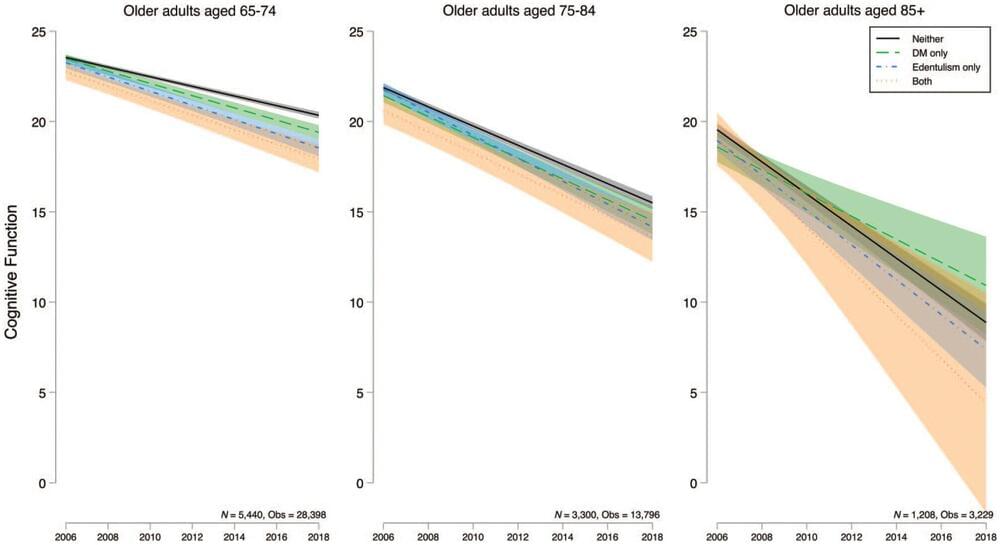Having both diabetes and tooth loss contributes to worse cognitive function and faster cognitive decline in older adults, according to a new study published in a special issue of the Journal of Dental Research focused on aging and oral health.
“Our findings underscore the importance of dental care and diabetes management for older adults in reducing the devastating personal and societal costs of Alzheimer’s disease and other related dementias,” said Bei Wu, vice dean for research at NYU Rory Meyers College of Nursing and co-director of the NYU Aging Incubator, as well as the study’s lead author.
Diabetes is a known risk factor for cognitive decline and dementia. Several of the hallmarks of diabetes —high blood sugar, insulin resistance, inflammation, and related heart disease—are thought to contribute to changes in the brain.






